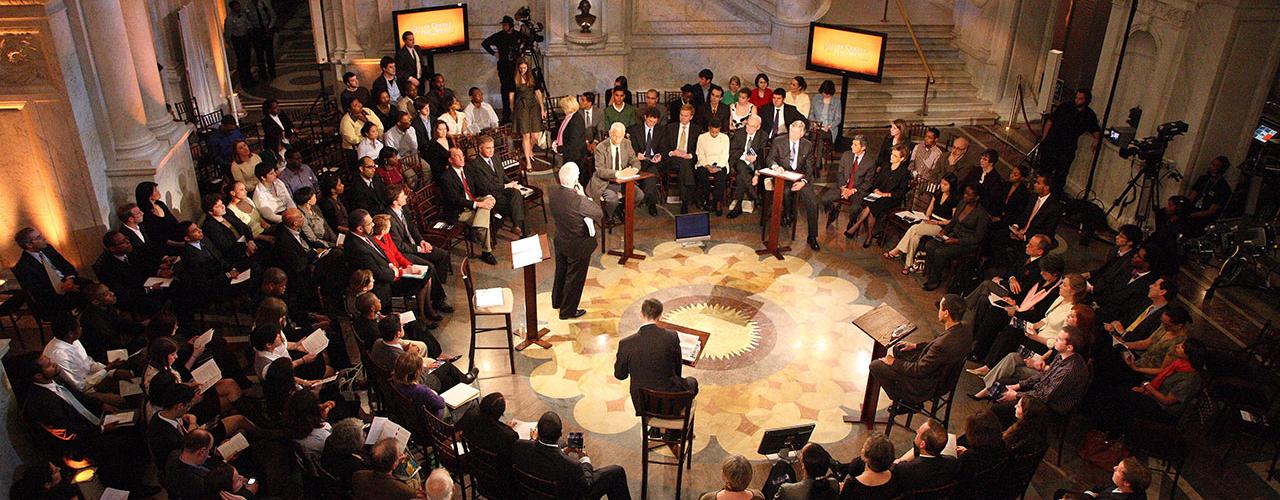Answered By: Priscilla Coulter Last Updated: Sep 22, 2022 Views: 13551
The websites linked below are reputable sources of opposing viewpoints on a wide variety of controversial topics. But, if you don't find enough coverage of your topic in any of those, there are ways that you can target differing opinions in the library's databases:
- Get some background information. You need to know as much about your topic as possible, and background research should give you a general idea of what different viewpoints exist. Take particular note of the words most commonly used to describe your topic (and each viewpoint), and the names of the experts who publish or speak about it.
- If your topic is a very recent one, search the APUS Library for articles. Articles are published more frequently than books are and are more likely to be current.
- You can search by keyword or by author. Be sure to search deliberately for all sides of the issue (this is where your background research will come in handy), and take care to rely on articles written by experts in the field.
- Peer-reviewed journals strive to publish unbiased articles, so their articles should present controversial issues in a balanced way (at least in the literature review). Find out how to limit your search to peer-reviewed articles.
- If you're researching a debate that's been around for awhile, search for books as well.
- You can search by keyword or by author. Take care to rely on books written or edited by experts in the field.
- Books are often written on broader topics, so you may need to broaden your keywords. You can then search within individual books for more specific keywords.
- If you search the open web (via Google, etc.), make sure that you rely only on authoritative sites. And, make sure you're not stuck in a filter bubble.
- Even when you're researching controversy, it's important to use accurate information.
- Take care that you are not influenced by your own biases.
 |
AllSides exposes people to information and ideas from all sides of the political spectrum so they can better understand the world — and each other. Offers balanced news coverage, media bias ratings, and civil dialogue opportunities. | ||||
 |
CQ Researcher: Pro/Con Sections provide award winning in-depth coverage of the most important issues of the day. Written by experienced journalists, footnoted and professionally fact-checked. |
||||
 |
Issues & Controversies explores and analyzes hundreds of hot topics in politics, business, government, crime, law, energy, education, health, family, science, foreign policy, race, rights, society, and culture. |
||||
 |
ProCon.org is a 501(c)(3) nonprofit nonpartisan public charity that provides well-sourced pro, con, and related research on more than 50 controversial issues, from gun control and death penalty to illegal immigration and alternative energy. | ||||
 |
The Wall Street Journal's Big Issues reports feature opposing opinions by experts in a wide variety of fields, on controversial issues ranging from health to environment. Subscription resource; enter your APUS id and password to access. | ||||
 |
The University of Virginia: Miller Center National Discussion & Debate Series aims to create a place where civil discussion can advance our national understanding and interest. This public debate series presents substantive policy discussions. |
persuasive writing
bias, nonbiased, non-biased
Was this helpful? 11 2
